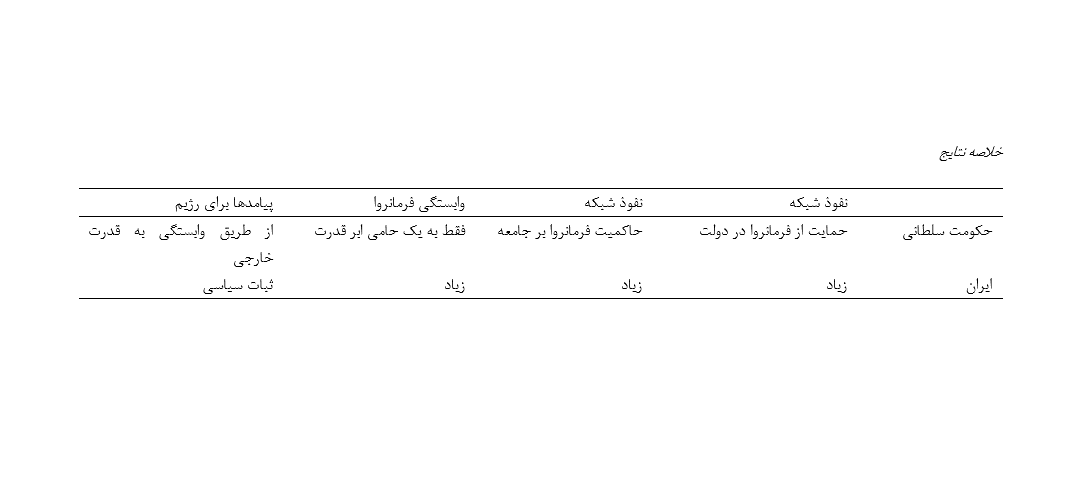Analysis of the Process of Forming a Secular Identity of the State during the Pahlavi Era Based on Max Weber’s Theory of Identity
Keywords:
government, secularism, theory, Max Weber, Reza ShahAbstract
Max Weber argues that the state is a human community that successfully seeks to monopolize the legitimate use of material forces and the means and instruments required to exercise its authority within a defined territorial domain. The friction between Iran and the West introduced secularism into the discourse of Iranian politics. The secular identity of the state took on a radical form during the reign of the first Pahlavi monarch and accelerated the secularization of culture in Iran. This study aims to examine the process of forming the secular identity of the state during the Pahlavi era based on Max Weber’s theory of identity, using a descriptive–analytical approach. The findings indicate that the Iranian secular identity was constructed by Iranian intellectuals, yet its political emergence did not stem from elections or the ideals of constitutionalism. Religious traditions were so deeply entrenched in Iranian society that even Reza Shah, recognized as the most prominent builder of the secular identity of the state in Iran’s modern history, was compelled to display religious pretenses. Nevertheless, the construction of a secular state identity was the result of Reza Shah’s specific policies to attract the support and approval of the clergy. Once Reza Shah had consolidated his power, the approval of the clergy no longer mattered to him, and the secular identity of the state ultimately emerged as a consequence of his authoritarian policies.
Downloads
References
Abrahamian, E. (2000). Iran between two revolutions: An introduction to the political sociology of contemporary Iran (5 ed.). Ney Publishing.
Ajodani, M. (2004). Either death or modernity. Akhtaran.
Asaf, M. H. (2005). Ideological foundations of government during the Pahlavi era. Center for Islamic Revolution Documents.
Azad Armaki, T., Hazerli, A. M., Saee, A., & Nosratinejad, F. (2020). A sociological explanation of the identity policies of the first Pahlavi government. Iranian Journal of Sociology, 21(3), 59-81.
Bashirieh, H. (2000). Scientific dialogue: Political development and national identity crisis. National Studies, 5(1), 287-316.
Behnam, J. (2004). Iranians and the idea of modernity. Farzan Rooz Research & Publishing.
Breuilly, J. (2011). Max Weber, charisma and nationalist leadership 1. Nations and Nationalism, 17(3), 477-499. https://doi.org/10.1111/j.1469-8129.2011.00487.x
Ghafouri, M. H. (2021). The impact of the modernization process on the clergy during Reza Shah's era. Journal of Humanities, 16(8), 18-32.
Guerra, P., & Turner, E. (2021). 'People Have the Power': Resistance in Late Modernity. Cidades, Comunidades e Territórios. https://doi.org/10.15847/cct.25611
Hajarian, S. (1995). The structure of sultanic authority: Vulnerabilities and alternatives. Political-Economic Information(91-92).
Katouzian, M. A. (2000). State and society in Iran. Markaz. https://doi.org/10.5040/9780755609727
Linz, J., & Chehabi, H. (2001). Sultanistic regimes. Shirazeh Research & Publishing.
Manouchehri, A. (1997). The coup of March 1921 and Iranian sultanism. Contemporary History of Iran, 1(4).
Mirahmadi, M., & Jabbari Nasir, H. (2010). The theoretical model of the absolutist state and the emergence of a quasi-modern absolutist state in Iran. Political Science Research Quarterly, 6(1[21]), 167-199.
Norkus, Z. (2004). Max Weber on nations and nationalism: Political economy before political sociology. Canadian Journal of Sociology/Cahiers canadiens de sociologie, 389-418. https://doi.org/10.2307/3654673
Palonen, K. (2001). Was Max Weber a 'nationalist'? A study in the rhetoric of conceptual change. Max Weber Studies, 196-214.
Partovi, A. (2020). The role of nationalism and Islam in creating a shared identity for nation-building during the Pahlavi period Imam Sadiq University]. Tehran.
Ray, L. J., & Reed, M. (2002). Max Weber and the dilemmas of modernity. In Organizing modernity (pp. 158-197). Routledge. https://doi.org/10.4324/9780203420737
Raza, S. (2023). Max Weber and Charles Taylor: On normative aspects of a theory of human action. Journal of Classical Sociology, 23(1), 97-136. https://doi.org/10.1177/1468795X221080770
Ringer, F. (2010). Max Weber: an intellectual biography. University of Chicago Press.
Shamsini, H. (2004). The Pahlavis and Max Weber's sultanism. Zamaneh(22).
Waters, T. (2016). Are the terms "socio-economic status" and "class status" a warped form of reasoning for Max Weber? Palgrave Communications, 2(1), 1-13. https://doi.org/10.1057/palcomms.2016.2
Weber, M. (2008). Religion, power, society. Hermes.

Downloads
Published
Submitted
Revised
Accepted
Issue
Section
License
Copyright (c) 2025 Ebad Hajinejad (Author); Ali Fallahnejad (Corresponding Author); Ali Fallahi Seifuddin (Author)

This work is licensed under a Creative Commons Attribution-NonCommercial 4.0 International License.







